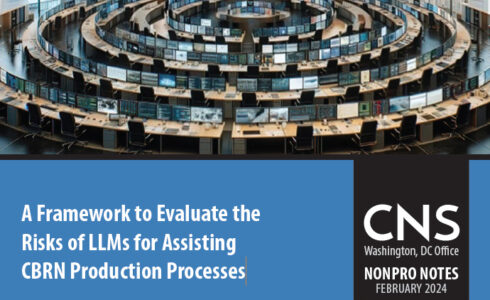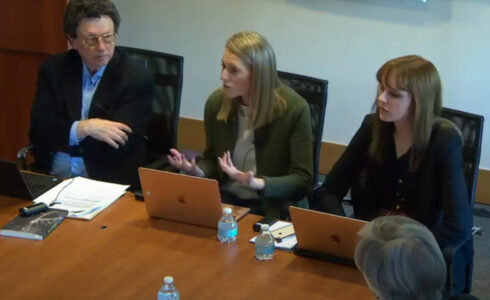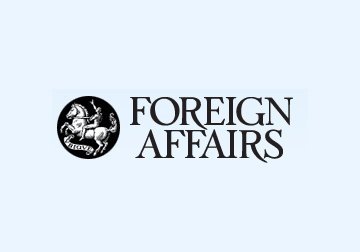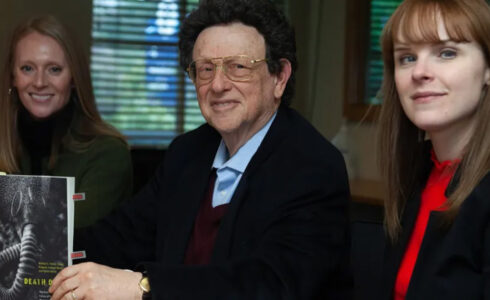
This paper examines how Large Language Models (LLMs) could contribute to the proliferation of chemical, biological, radiological, and nuclear (CBRN) weapons.

Hanna Notte took part in a panel discussion at the Munich Security Conference.

Death Dust explores the largely unknown history of the rise and demise of RW—sometimes portrayed as a “poor man’s nuclear weapon”—through a series of comparative case studies across the United States, the Soviet Union, the United Kingdom, Egypt, and Iraq.

Article on Russia’s relationship with the axis of resistance, to balance ties with Arab countries, including Israel, its encouragement of anti-American activities among Iran-backed groups, and the U.S. challenge to counteract by addressing conflicts and disrupting the partnership between Russia and the axis.

This seminar focuses on the findings of the recently published book “Death Dust: The Rise, Decline and Future of Radiological Weapons Programs.”

The seminar showcased the wide range of CNS expertise and its collaborative relationships with industry.

This video features discussions on the nuclear issues in North Korea with a short discussion of Iran.

Podcast: CNS expert Hanna Notte is interviewed on the podcast, Thinking the Unthinkable with Ankit Panda.

North Korea’s recent endeavors in AI/ML development signify a strategic investment to bolster its digital economy.